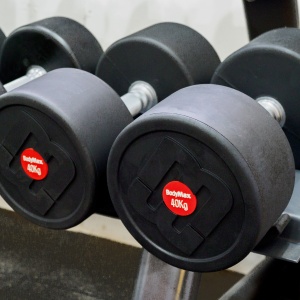Does Exercise Boost Immunity?
Could exercise be a key ingredient in preventing bacterial and viral infections and boosting your immune system?
It turns out regular physical activity does play a role in keeping you healthy and preventing illnesses. That’s because exercise contributes to your overall health, which may help support your immune system’s functions.
This article explains the theories behind how exercise can support your immune system and gives some insight into whether you should work out when you’re sick.
Share on PinterestWestend61/Getty Images
Does regular exercise help your immune system?
In short, yes. Exercise benefits your body in a number of ways, and boosting your immunity is just one of those. But there is one important caveat: The frequency, duration, and intensity of your workouts matter.
Research shows that when it comes to boosting your immunity, moderate-intensity exercise is best (1).
In general, exercising at a moderate to vigorous intensity for 60 minutes or less is optimal for the immune-boosting benefits of exercise. If you do this daily or almost daily, your immune and metabolic systems continue to strengthen, building on previous gains (2Trusted Source).
On the other hand, prolonged high intensity training — especially without appropriate rest between sessions — can suppress your immune system (2Trusted Source).
This is an important consideration if you’re a competitive athlete or are training for an endurance events like a marathon. In those cases, take extra care to give your body ample recovery time.
How much should I exercise?
Before getting into the ways physical activity may help your immune system, it’s important to discuss how much exercise you likely need for general health.
According to the U.S. Department of Health and Human Services (HHS), most adults should get at least 150–300 minutes of moderate-intensity aerobic activity or 75 minutes of vigorous physical activity each week (3Trusted Source).
The HHS also recommends doing at least 2 days per week of muscle-strengthening activities involving all major muscle groups in your legs, hips, back, abdomen, chest, shoulders, and arms.
Being active most days of the week is an excellent goal to benefit your overall health and well-being. It’s also a great place to start if you want to work toward boosting your immune system.
6 ways exercise benefits the immune system
A healthy immune system protects your body from bacteria, viruses, and other pathogens you encounter daily.
Here are 6 ways exercise may help your immune system.
1. Exercise stimulates cellular immunity
According to a 2019 research review, moderate-intensity exercise can stimulate cellular immunity by increasing the circulation of immune cells in your body. This helps your body better prepare for a future infection by detecting it earlier (2Trusted Source).
Researchers found that performing aerobic exercise at a moderate to vigorous intensity for less than 60 minutes (an average of 30–45 minutes) increases the recruitment and circulation of the immune system’s best defensive cells (2Trusted Source).
These findings indicate that regular exercise can enhance immune defense activity by making you more resistant to infection and better equipped to deal with infectious agents that have already gained traction in your body (4).
2. Exercise raises body temperature
Unless you’re moving at a snail’s pace, your body temperature will increase during most forms of exercise and will stay elevated for a short time after you complete a workout (5).
Why is this significant? It’s a commonly held belief that this brief rise in body temperature both during and after exercise may prevent bacteria from growing and help your body better address an infection, similarly to how a fever works.
Still, it’s important to note that this claim lacks evidence-based support.
While this temporary temperature rise is not as significant as the increase you experience with a fever, it still may be beneficial to your immune system.
3. Exercise helps you sleep better
Regular physical activity can contribute to better overall sleep quantity and quality (6Trusted Source).
This is great news since sleep loss can negatively affect certain parts of the immune system (7Trusted Source).
Some research points to a higher risk of infection and development of cardiovascular and metabolic disorders due to a reduction in antibodies and the production of inflammatory cytokines in people with a modest amount of sleep loss (8Trusted Source).
4. Exercise decreases risk of heart disease, diabetes, and other diseases
Exercises can reduce cardiovascular risk factors, prevent or delay development of type 2 diabetes, increase HDL (good) cholesterol, and lower resting heart rate (9, 10Trusted Source, 11Trusted Source, 12).
Having one or more of these conditions may make it more difficult for your immune system to ward off infections and viral illnesses such as COVID-19 (13Trusted Source).
5. Exercise decreases stress and other conditions such as depression
There’s a reason people like working out after a long day at work: It helps decrease stress.
More specifically, moderate-intensity exercise can slow down the release of stress hormones while positively influencing the neurotransmitters in the brain that affect mood and behavior (14, 15, 16Trusted Source).
Furthermore, regular exercise may offer a protective benefit against stress — meaning that exercise helps you proactively handle stressors with more resilience and a better mood (17Trusted Source, 18Trusted Source).
According to some research, stress and depression can have a dramatic impact on the regular function of the immune system, leading to a low chronic inflammation status that favors infections, diseases, and other illnesses (19Trusted Source).
6. Exercise reduces inflammation
Inflammation is a normal immune system response that your body uses to address pathogens or toxins.
Acute inflammation isn’t necessarily a problem, but when that acute response remains uncontrolled, it can become chronic and potentially lead to a host of inflammatory diseases (20Trusted Source).
Research has shown that exercise can reduce inflammation and keep that immune response in check — but exercise intensity matters (21).
Studies suggest that moderate-intensity exercise reduces inflammation, while prolonged bouts of high intensity exercise can actually increase inflammation (22).
The takeaway? Moderate exercise with appropriate rest periods can maximize the effectiveness of your body’s inflammatory immune response, lowering your risk of chronic inflammation.
SUMMARY
Regular exercise can result in better sleep, improved moods, lower stress levels, and increased circulation of immune cells in your body — all factors that contribute to a healthy immune system.
- Personal Training
12 Week Customized Personal Training Program
- Exercise Equipment
Bowflex Adjustable Dumbbells
- Exercise Equipment
Home Gym
- Exercise Equipment
Loop Exercise Bands
- Exercise Equipment
Resistance Bands






